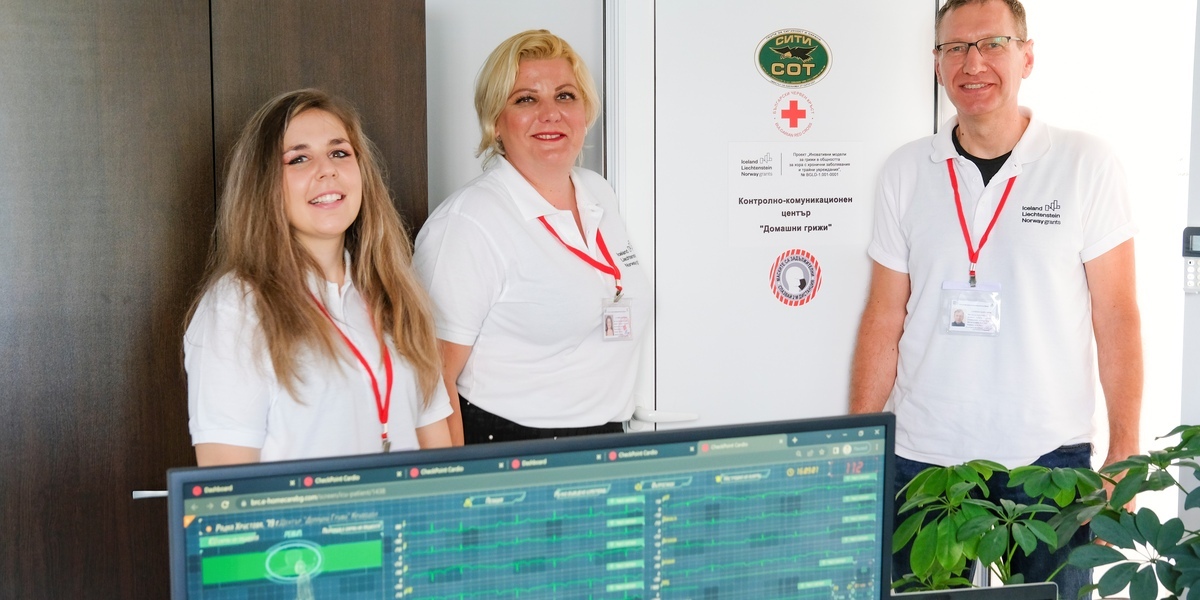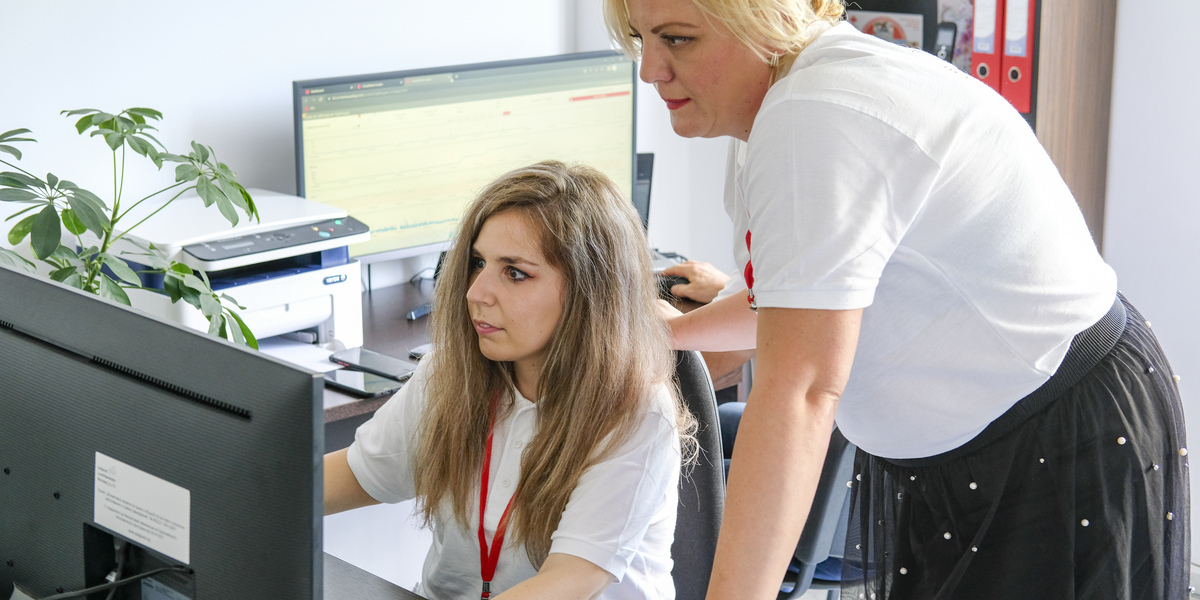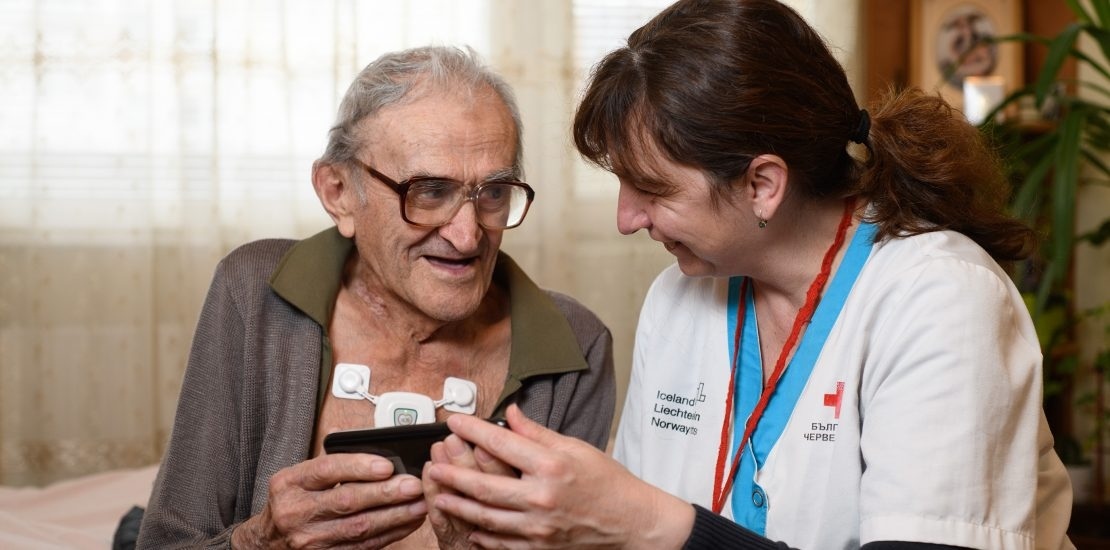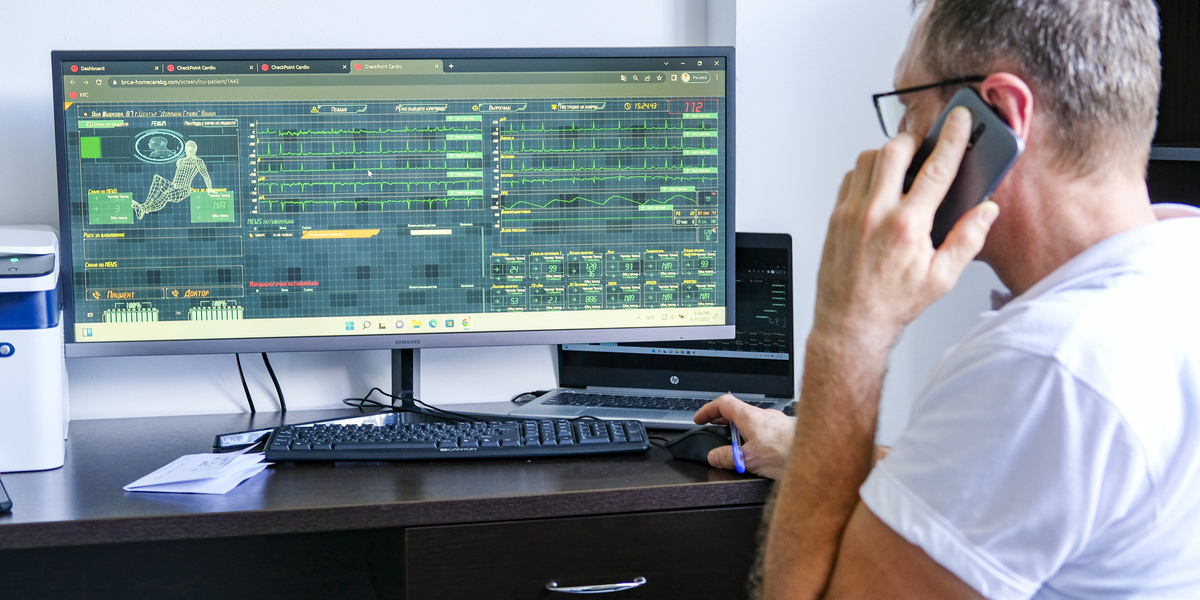21-03-2023 09:03
Since spring of 2022, more than 750 elderly people with chronic diseases and permanent disabilities living in North-West Bulgaria have been benefiting from a new service for constant health monitoring with electronic devices. The initiative is of the Bulgarian Red Cross (BRC), under a project supported by Norway, Iceland and Liechtenstein. To enhance it even more, we draw on the experience of the Norwegian Association of Local and Regional Authorities. An aging and dispersed population are among the problems of Norwegian society too. For both countries, access to health services is a comon civil right. In Norway, the issue has been resolved, with the existing 356 municipalities taking care of it. A major part of the funds in their budget is allocated for the provision of health care.
In Bulgaria, a serious problem for many villages, especially in North-West Bulgaria, is depopulation, lack of medical care, difficult transportation and an aging population. How does BRC help? In the period between 2012 and 2016, with the help of Switzerland, 4 centers for home care were created in municipalities in North-West Bulgaria. Trained nurses and home assistants visit 700 people in their homes. The goal is, generally said, that our parents and grandparents to have worthy ageing in their own home. The next step has been undertaken with the current project and the chance to monitor medical indicators from distance, thanks to an electronic bracelet and a small device that is placed on the body. The information is collected and followed up in a special center in the city of Vratsa, where specialists provide 24 hours per day watch and react if necessary. We are also there to meet the small team that works behind the screen.
How new users of the service are selected and on what does it depend whether you will wear only a bracelet or both devices?
Each home care center manager decides on whether one should use only the wristband or both devices. This depends mostly on comorbidities. For example, if the person has a heart disease, hypertension, has suffered a stroke or a heart attack, he or she needs more often electrocardiograms, and then of a great help is the more sophisticated device. Frequently, after a stroke, a person is at risk of a second one, and here applies the prevention function and data collection for subsequent examinations.
How do people welcome this new and different initiative?
In most cases, we are first contacted by people close to a person in need, living alone or chronically ill, in order to warn us to pay him or her attention. They know this would do good. Some of these seniors don't even have a phone and our devices are the only connection with them.
In terms of operating with the devices, 70% of users manage to succeed well by themselves, and home assistants from the centres provide help to the rest.
In any case, the interest in both devices is very high. Colleagues in small villages come and ask them "When will we have the special bracelet". Being part of the programme gives them a sense of something special. The patients themselves are also calmer that someone monitors their state of health and if something happens, there will be a quick reaction.
What do you see on screen and how do you manage to follow all the users?
We monitor many indicators, including heart rate, stress level, activity, steps, breathing, blood pressure, body temperature, body position and others. All the information is accumulated in a database, to which we add available data on comorbidities and medications taken with their relevant side effects. The button for submitting a signal in an emergency situation, with which the more advanced devices are equipped, is also very important.
What is your role, apart from registering?
All employees have a medical education and have undergone a special training for working with the system. It is important to say that we do not make diagnoses and do not prescribe therapies, but the information that the system collects with which work, is very useful when visiting a specialist.
Tell us about a specific case from your daily work.
In this job, we have to work with many institutions. General practitioners, emergency care, 112, Civil protection, Fire department, emergency centers. It is important that everyone in the chain cooperates. To have an understanding of the activity we do. We had a case with a senior male and a female users from Vratsa. The man calls us - the woman fell at home, and she is overweight and the man can't pick her up. Ask us for help and we must respond. We called 911, but the ambulance was delayed. It was cold, the woman has been on the ground for an hour, and the man is worried. We call the contact person (for every user there is one, most often a close relative) and the Center for home care of the BRC in town - we are looking for different options. In the end, help arrives from several places almost simultaneously. The good thing is that most of them happen in the time in which it is possible to react.
The project will continue at least until April 2023 and with the home assistants the Bulgarian Red Cross will reach hundreds of people in need more. There is aspiration that the care will be converted as a permanent service, with a commitment from the state authorities. You can find more information at the specially created site.







